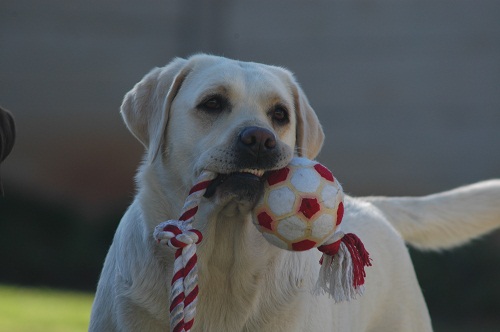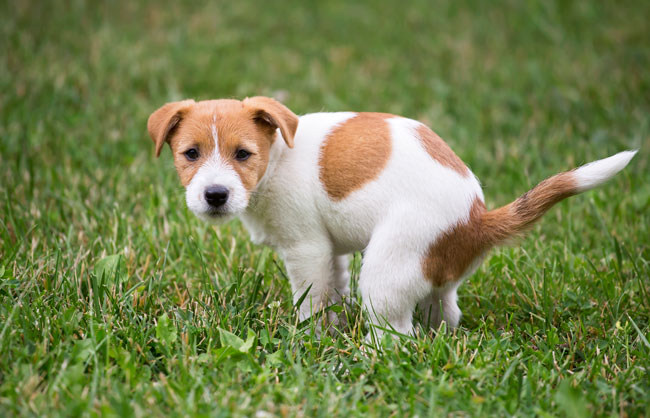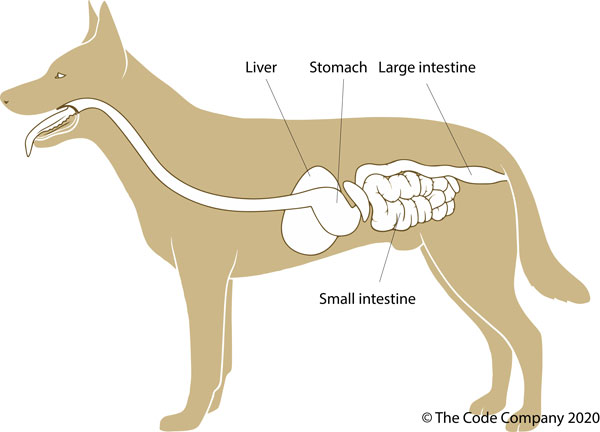
View Vetwebsites Articles
Urolithiasis

My pet has begun to pee a lot more frequently, but in smaller amounts. Even though she's house-trained, she still pees in the house and sometimes there is blood in her urine.
What is urolithiasis?
Urolithiasis is the long-winded Latin term to describe the development of bladder and kidney stones. The term ‘uro’ describes the urinary system, while ‘lith’ means stone.
Rabies

I've heard on the news that there's a new outbreak of rabies in dogs. What are the symptoms and what should I do?
Towards the end of June 2021, the Gauteng Department of Agriculture and Rural Development (GDARD) informed the public of an outbreak of Rabies in the Cradle of Humankind area. Near the end of August 2021, the Western Cape government issued a warning of a new rabies outbreak and encouraged pet owners to ensure their pets' rabies shots are up to date. In early August, three women were attacked by a honey badger and tested positive for rabies, while earlier in September, a young boy in the Eastern Cape died from rabies as the result of a dog bite. Traditionally,
Dilated cardiomyopathy (DCM) in dogs and cats

My pet tires quickly when playing or exercising and sometimes has a soft cough like trying to clear their throat
What is dilated cardiomyopathy?
Cardiomyopathy is a disease condition of the heart muscle that inhibits its ability to function properly. In the case of dilated cardiomyopathy (DCM), the heart muscle is stretched and the muscle is thin and flabby, affecting its pumping ability. Dilated cardiomyopathy can affect both pets and people.
COVID-19 and Your Pets: Update

The SARS-CoV-2 Virus
It has been more than a year since COVID-19, caused by the coronavirus SARS-CoV-2, has been declared a worldwide pandemic. Much research has been done regarding many aspects of the virus, the disease process it causes as well as the spread of the virus. In the wake of the anticipation of South Africa’s ‘third wave’ of COVID-19 infections, this article serves as a follow-up discussion regarding information that has come to light in the past year.
Coughing

My pet seems to have a persistent cough. What caused it and what can I do about it?
Coughing is one of the most common syndromes veterinarians all around the world encounter during consultations. Coughing in itself is not a disease, but a symptom of something else in your pet. The onset, type of cough, duration and production will help the vet to get to the bottom of what’s going on inside your pet.
PERIANAL FISTULA

My dog has sores around his anus, which he is constantly licking. He also gets aggressive if I touch his tail and he seems uncomfortable and is just not himself. What's wrong?
Perianal fistulas are an extremely painful medical condition of the anal region of dogs. As the name describes, this condition involves infection in the skin and surrounding tissue of the anus. ‘Peri’ means around, the anus, while a fistula is a tunnel in the skin that connects an area of infection to the skin or glands. This condition is characterised by very smelly draining sinus tracts in the skin around the anus and sometimes the deeper structures beneath the skin up to the rectum.
Chronic diarrhoea in dogs and cats

My pet has recurring episodes of loose stools
What is chronic diarrhoea?
Chronic refers to a disease that has been ongoing, either persistently or intermittently for three weeks or more. Whereas diarrhoea, as many of us can relate, is the passing of soft or loose stool. This stool is usually soft enough that it needs to be scraped up rather than picked up. It can range from the consistency of thick porridge to watery like soup.
Acute Abdomen

My pet won't eat, has a distended belly, is retching, and appears restless and in pain. She seemed fine yesterday, what could be the cause?
Now and again pet owners are faced with emergency situations when their pets are suddenly in severe belly pain. Unexpectedly, both the owner and the pet are in a moment of anxiety and distress. So what could possibly be going on? This sudden severe belly pain is what veterinarians call an acute abdomen.
My pet lost a patch of fur and developed a massive sore overnight. It looks like a burn wound.

Hotspots (Acute moist dermatitis or moist eczema)
Acute moist dermatitis is a skin ailment in pets that’s caused by a trigger like an itch or pain, and exacerbated by the pet’s scratching and licking until it becomes a large bare patch of painful skin lesion. Since the lesion is an open painful wound, it’s referred to more commonly as a hotspot.
Acral lick granuloma

My pet does not stop licking his leg and has a huge sore where he licks
When a pet owner brings their animal in to the vet with a firm, raised, angry red bump on the pet’s leg or ankle, complaining that the animal (a dog more often than a cat) won’t stop licking at it, the vet knows that there is a potentially long road of diagnosis and treatment ahead. The symptoms and behaviour described here are common in what’s called acral lick granuloma.
